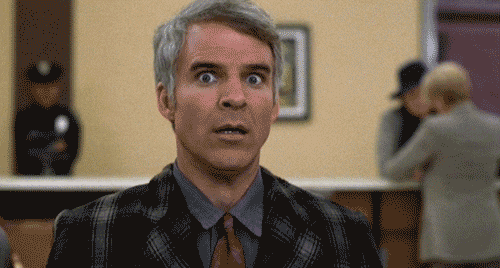Why would you expect them to be?
If my family starts a restaurant and hires additional workers to, for example, help clean, bus tables, wait tables, and so on, I think it would be kinda weird to share the decision making between all employees. It makes more sense for employee owned corpos, but most small businesses have an owner or owners whose main job is steering the business.
Because I would expect people in democratic nations to value democracy and see it as worth exercising in business. This is in part as I see democracy as a formal way of referring to being open to discussion of opinions and ideas in organizing any group.
Why would you want to be part of any group that may reject open discussion of its organization?
Because you can easily swap companies, but you can’t easily swap countries.
There isn’t an inherent value to making all businesses democratic because very often most workers have no idea how the larger company works as a whole.
I work for an import company. My union warehouse steward is constantly judging the financial health of the company based on the volume of boxes he is shipping. The problem is he has no idea the relative value of those boxes so while he’s bemoaning we sent out 1/4 of the number of boxes on Tuesday that we sent out on Monday he’s missing that the total value of Monday’s sales were 3x Tuesdays. In 5 years of working with the guy he has never wrapped his brain around this. Our company would be much worse off if he had a say in how it works because he simply cannot see the larger picture as those skills were never developed. This is not uncommon and I myself have been the guy who cant see that larger picture in other roles.
Should the janitorial staff have equal says as to the executives in how funds should be allocated? Do we recognize that not everyone has the same skill set and level of skill as others?
You can use all of these same arguments to argue against democracy in nations, too. The average person has no idea how the nation works, all of the ins and outs of government, to say nothing of the larger global stage. Clearly what we need is a monarchy!
That’s a false equivalence though as private businesses and governments are not the same.
Should the janitorial staff have equal says as to the executives in how funds should be allocated?
Given their propensity for allocating the funds to themselves, probably.
Yeah that’s not as common as people who have never run or managed a company or budget think.
The reality is your maintenance staff isn’t going to have the skill set to make rational judgements outside their expertise.
Lets be realistic here, the reality is that most of the managerial staff including the C suite people don’t have the skill set to make rational judgements on the working of the company either.
And then when it gets big enough, all decisions get filtered through C-level, their hangers on, and a roughly “democratic” board. In the sense that multiple people vote on the best course of action, not that they represent the workers.
Oh, look, all of a sudden a diverse array of inputs is providing value. Weird.
Because as of yet the means of production aren’t public property. So the people who own them get to decide the structure of production and they decided we don’t get a say in how they are used.
Do they need to be public property or do they need to be in the hands of those working there? I’d be more inclined towards the latter as in most cases the public as a whole is not going to have an informed or educated perspective on how specific jobs/roles/companies should behave.
Those are so similar to each other in comparison with capitalism that at this stage, we mostly use the same words to describe both.
No, they are not. The USSR and China (only in theory) had/has public ownership and it is quite different than the workers comtrooling their business.
When the public owns the means of production you open up the likelihood of the state directly oppressing the workers as happened in the USSR and China.
Well, in theory is pretty different from in practice
All states oppress people, thats the point of a state. The goal of a socialist state is to oppress the bourgeois. While the workers of USSR and China did and do not have full control over means of production they had significantky more than we do
Capitalism is antithetical to democracy. Capitalism left unchecked will eventually lead to fascism.
The first sentence is not true. The second sentence is absolutely true. It is funny how that works.
The first one is true.
In democracy, the people rule society
In capitalism, the rich rule the economy
The economy always rules society
In a capitalist democracy, society serves two masters. Both opposites. It’s inherently unstable because it’s self contradicting.
Economic systems are not viewed in terms of who “rules” unless we are taking a Marxist perspective.
The first sentence of the post is and will always be completely untrue.
Bro just watched tech billionaires coup the US government and he still doesn’t understand the problems with the concentration of wealth.
At no point have I said that the concentration of wealth isn’t a problem.
I have said that it is false to claim democracy and capitalism cannot co-exist. They absolutely can and do in many nations. France is currently both.
I’m looking forward to everybody getting red-pilled on Marx in the coming months.
https://en.wikipedia.org/wiki/The_purpose_of_a_system_is_what_it_does
Edit: Marx (and similar theorists before him) do a better job describing Capitalism compared to those whose paychecks depend on them not understanding / distorting it.
Well, there’s nothing inherent about democracy. Nothing about reality inherently forces society towards a democracy.
Our democracies are just as socially constructed as our workplace structures. One of them (society) we’ve managed to make democratic. The other (businesses) are much smaller, and larger in number, and thus harder to influence overall as a system, thus it’s taking us much longer to push them towards democratic structures as well.
You get where I was going with this! It’s exactly that constructed form, and the supposed favoring of it, that led to my asking this.
If a society claims to embrace democracy, but doesn’t extend this to the organization of its businesses, how much do they embrace democratic values?
how much do they embrace democratic values?
Not as much as we’d like, unfortunately. A lot of people are DINOs. (Democracy In Name Only)
Violence tends to speed things along.
Just sayin.
Not in this case it does not.







